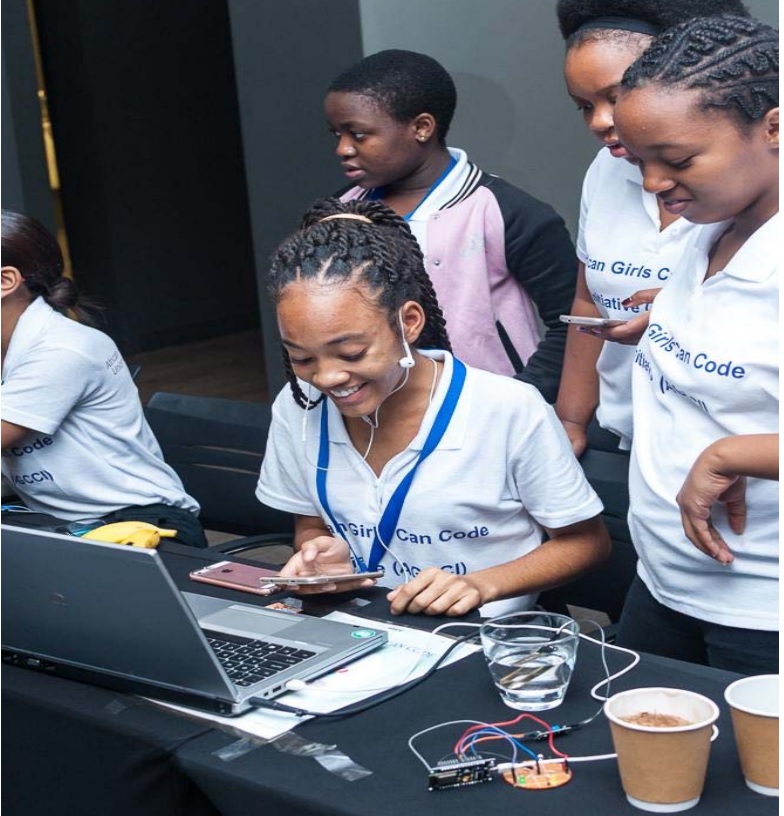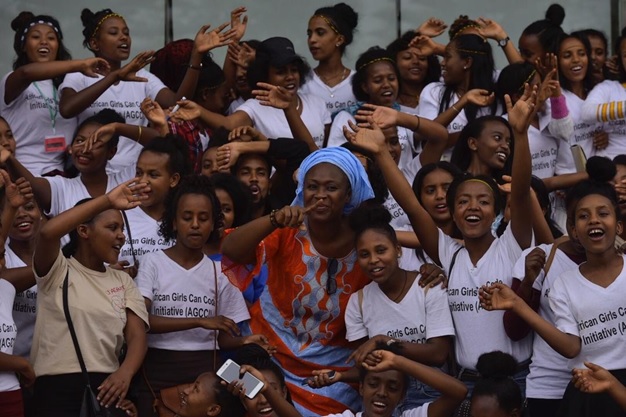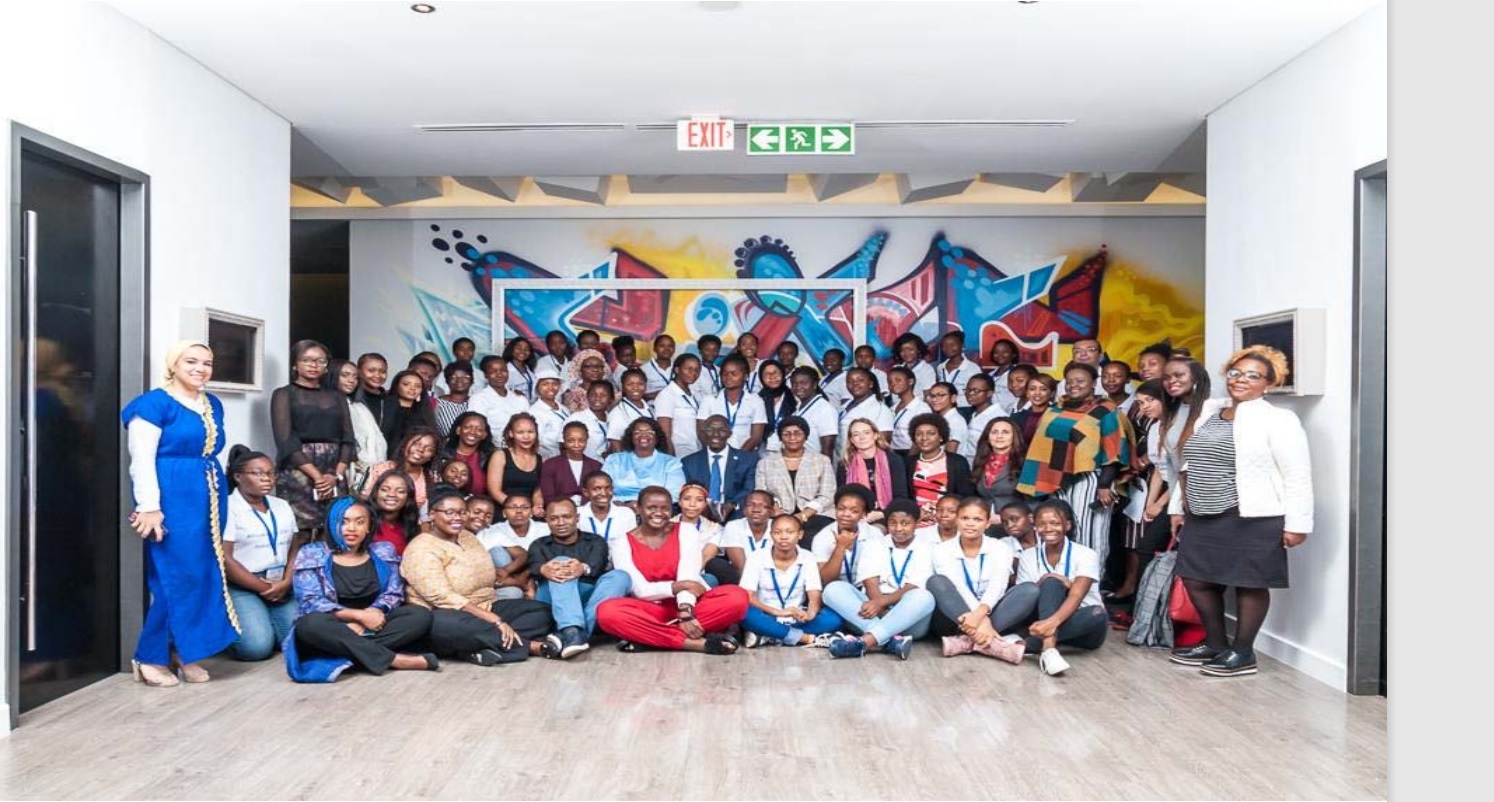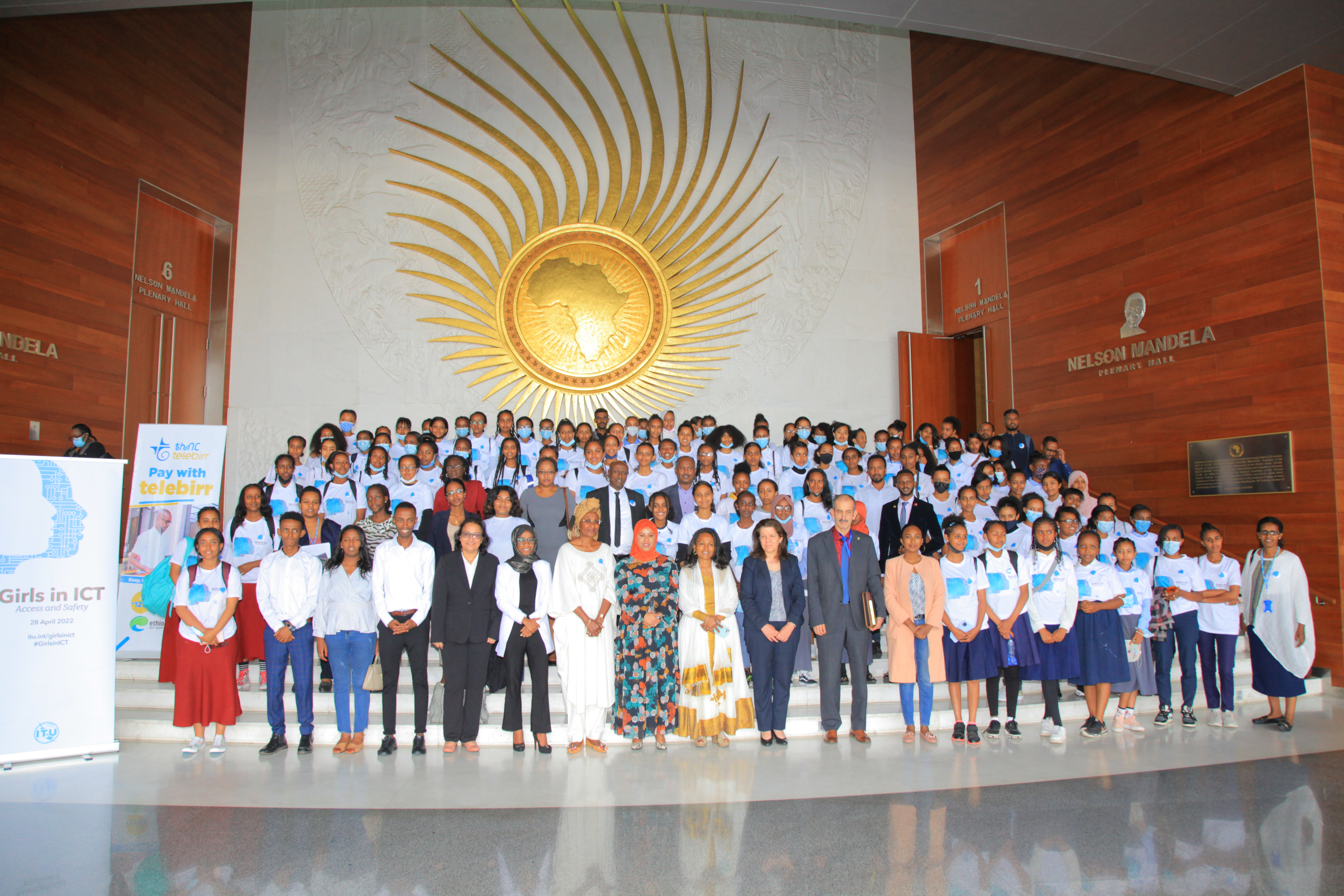 About African Girls Can Code Initiative
About African Girls Can Code Initiative 

 The African Girls Can Code
Initiative (AGCCI) is an initiative that aims to empower girls and young women by providing tangible programmes to increase access to modern technology for girls and young women to bridge the digital gender divide.
It also providing girls and young women with pathways to contribute and participate in substantial ways to innovation and digital transformation in Africa through access to education and employment opportunities.
The African Girls Can Code
Initiative (AGCCI) is an initiative that aims to empower girls and young women by providing tangible programmes to increase access to modern technology for girls and young women to bridge the digital gender divide.
It also providing girls and young women with pathways to contribute and participate in substantial ways to innovation and digital transformation in Africa through access to education and employment opportunities.
The initiative involves the delivery of coding camps to young girls to equip them with both technical and soft skills and the
mainstreaming of
ICT, coding and gender perspectives into the national curricula with engagement of policy makers. Through media campaigns, the initiative aims to engage women role models in ICT, local tech stakeholders, young entrepreneurs, to share their personal experiences and inspire young girls to pursue careers in the ICT sector and actively engage in and contribute to their respective local digital ecosystems.
Activities under the AGCCI:
First Phase:
The first phase of the AGCCI with a regional focus and national pilots was implemented between 2018 and 2021 by ITU in collaboration with UN Women, the African Union Commission, and UN Economic Commission for Africa with financial support from the Embassy of Denmark in Ethiopia.
It was designed to equip young girls with digital literacy, coding and personal development skills. During this first phase, various coding camps were organized which included a continental camp organized in Addis Ababa in 2018, a regional camp in Pretoria, South Africa and three national camps in Ethiopia in the cities of Adama, Awassa and Addis Ababa that were organized in 2019.
It was designed to equip young girls with digital literacy, coding and personal development skills. During this first phase, various coding camps were organized which included a continental camp organized in Addis Ababa in 2018, a regional camp in Pretoria, South Africa and three national camps in Ethiopia in the cities of Adama, Awassa and Addis Ababa that were organized in 2019.
A workshop on gender mainstreaming was also conducted in Addis Ababa and an online platform developed following the national camps held in Ethiopia.



Second Phase:
In collaboration with the African Union, UN Women, ITU, UN Economic Commission for Africa, UNESCO, UNICEF and other partners with financial support from the Government of Belgium, the second phase of AGCCI was launched in April 2022 in conjunction with the Girls in ICT day annual celebrations. Building upon the different achievements and experiences from the first phase, the second phase of AGCCI aims to organise coding camps at national level to equip young girls with digital skills to bridge the gender digital divide and enable inclusiveness for young girls and women in the digital sector. The initiative will also facilitate the main-streaming of gender and coding in national curricula for future employment opportunities following the impact of the COVID-19 pandemic especially on young girls and women in a collective effort to bridge the gender digital divide.

AGCCI online platform:
To ensure sustainability of the AGCCI online platform, the platform is now hosted on the
ITU Academy platform that provides additional functionalities and increased capacity to enable the young girls to access evolving training material to build and strengthen their technical skills and soft skills and facilitate continuous learning to engage in the ICT sector. The ITU Academy further ensures the safety of users who are below 18 years of age with a dedicated space is created for them to access the courses and a Consent Form that can be signed by the Parent, Legal Guardian or Representative from the nominating institution upon creation of their accounts to access the platform. This is done to ensure the safety of any user below 18 years of age from any harmful practises while using the online platform.
With consideration of the curriculum followed in respective learning institutions, the courses delivered under the African Girls Can Code Initiative are categorized under two Modules that include Technical Skills and Soft Skills. This approach aims to build and strengthen the digital skills of the young girls and enable them to pursue Science, Technology, Engineering and Mathematics (STEM) while preparing them for future career opportunities in the digital sector. At the same time, the units under Soft skills aim to equip the young girls with soft skills to strengthen inter-personal skills and values that include leadership, communication, and entrepreneurship among others.
Under the two modules of Technical and Soft Skills, fourteen units are currently available on the ITU Academy for the AGCCI. Seven units focus on Technical Skills and include Scratch Programming, Turtle Stitch, Fashion Design, Graphics Design, Animation and Gaming, Web design and development, Internet of Things and Robotics. The additional seven units focus on Soft skills and include Agenda 2063, Data Literacy, Design Thinking, Business Canvas Model, Computational Thinking and Coding, Cyber Security and Online Safety and Human Rights.
The delivery of the training modules is planned over a time- frame of two weeks. Upon completion of the coding camps, the young girls are well equipped with a foundational understanding of both technical skills and soft skills to develop and strengthen their digital and interpersonal skills respectively. They will be able to design or develop projects through the application of programming and coding techniques and creatively solve problems through design thinking together with knowledge on the concepts of cyber security and online safety. Additionally, they are empowered to recognize the linkages between technical and soft skills and integrate these linkages to engage and contribute to their local digital ecosystems and promote digital inclusion.
The training material available on the ITU Academy will be updated on regular basis to integrate and include additional information and components as available taking into account the evolving aspects of digital technologies and the need for enhanced digital skills.
Overall Outcomes of the African Girls Can Code Initiative:
Through the different activities from the African Girls Can Code Initiative, there will be increased awareness around learning opportunities in technology for girls and young women and their need for support in the ICT sector. Young girls will be equipped with digital literacy skills that include coding and programming to enable them study STEM subjects and pursue careers in ICT. The African Girls Can Code Initiative also provides a platform for similar initiatives to promote gender equality, collect and share best practises on how to bridge the digital gender divide and enable the young girls to engage in the local digital ecosystems such as tech clubs, companies through a sustainable approach.
